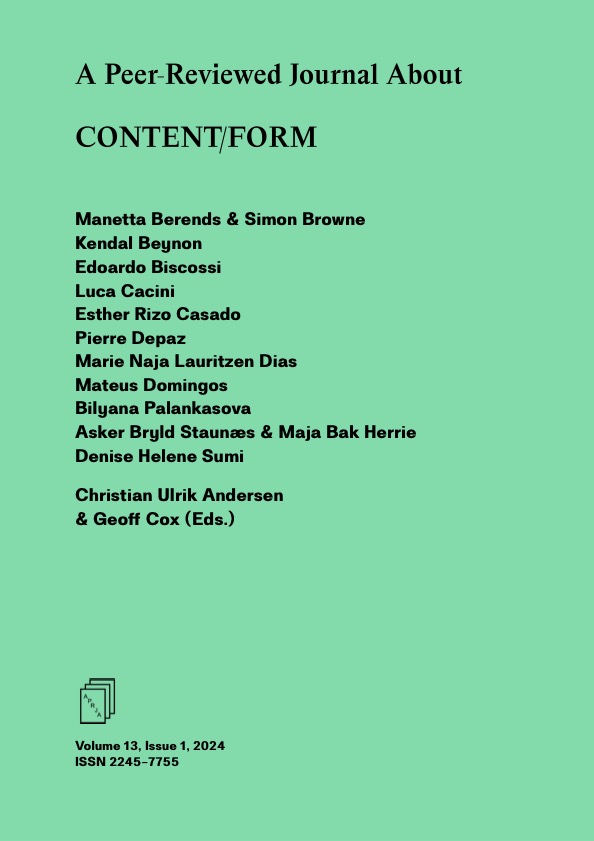The Autophagic Mode of Production
Hacking the Metabolism of AI
DOI:
https://doi.org/10.7146/aprja.v13i1.151233Abstract
This article delves into the autophagic nature of generative AI in content production and its implications for cultural and technological landscapes, defined in the paper as technocene. From a broader perspective, it proposes a metabolic characterization of the technocene and explores the idea of how generative AI, such as large language models (LLMs) like ChatGPT and DALL-E, resembles an autophagic organism, akin to the biological processes of self-consumption and self- optimization. The article draws parallels between this process and cybernetics, then evokes the mythological symbol of Ouroboros, reflecting on the integration of opposites and the shadow phenomena in LLMs. Specifically, the article discusses the concepts of “Model Collapse”, "Shadow Prompting" and "Shadow Alignment," highlighting the potential for subversion and the generation of potentially harmful, rebellious content by LLMs. It also addresses the ethical implications of generative AI in art and culture, highlighting the risk of a media monoculture, the spread of disinformation and the emergence of a category of Hackers embracing methodologies to deviate these infrastructures. The discourse aims to emphasize the subversive forms of synthetic media that the process of Generative AI, embedded by repetition in the algorithmic model of the machine, may engender. By examining the autophagic nature of generative AI and its potential ethical and cultural ramifications, the article seeks to analyze the reterritorializing of the relations of production by humans in the context of content creation and consumption.
Downloads
Published
Issue
Section
License
Copyright (c) 2024 Luca Cacini

This work is licensed under a Creative Commons Attribution-NonCommercial-ShareAlike 4.0 International License.
Copyrights are held by the individual authors of articles.
Unless stated otherwise, all articles are published under the CC license: ‘Attribution-NonCommercial-ShareAlike’.
The journal is free of charge for readers.
APRJA does not charge authors for Article Processing Costs (APC)


